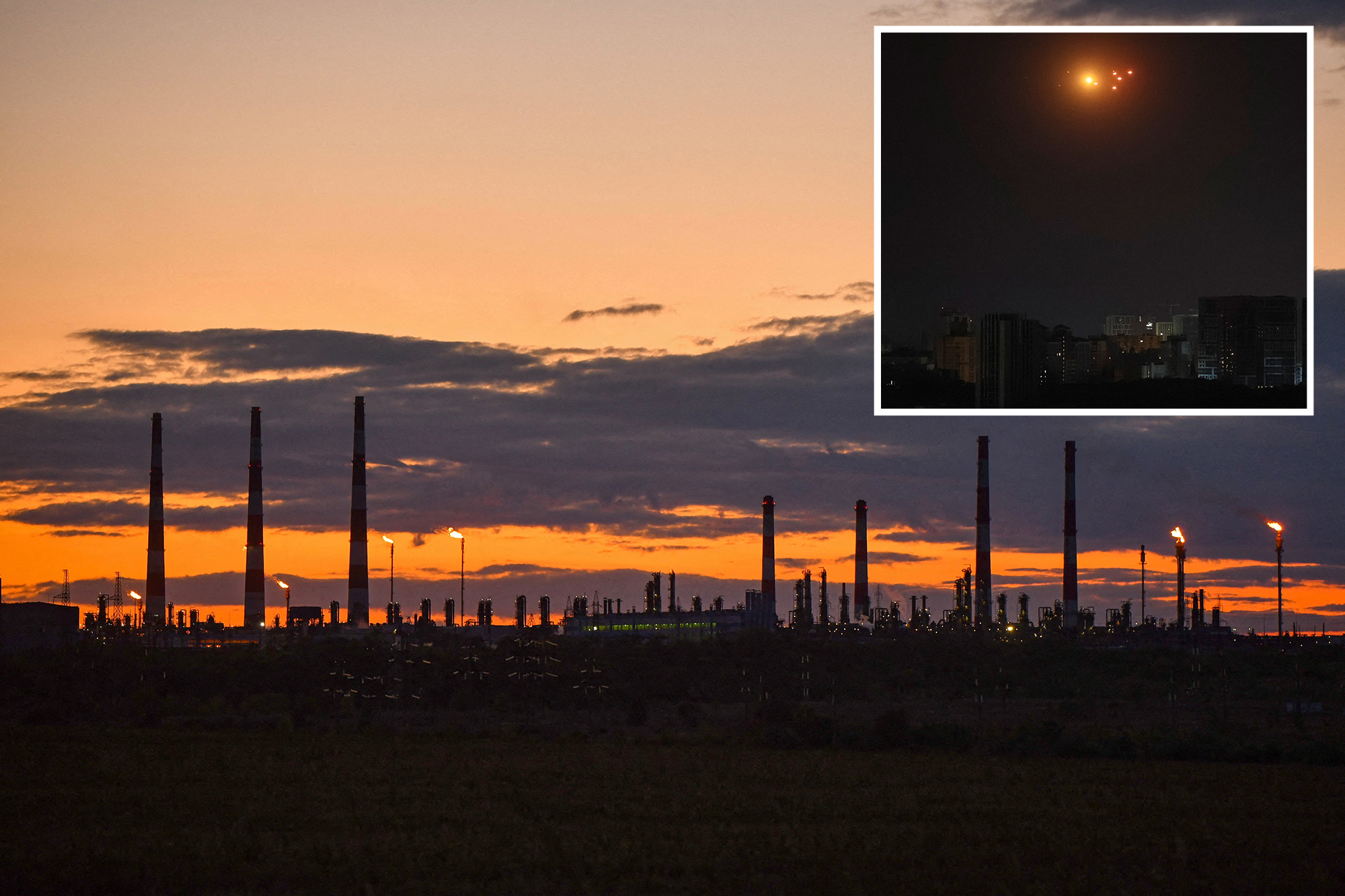World
Ukrainian Drone Attack Forces Shutdown of Russia’s Largest Gas Plant

A Ukrainian drone strike has led to the partial shutdown of Russia’s largest gas processing facility, the Orenburg processing plant. The attack, which occurred on Sunday, ignited a fire and resulted in significant damage, prompting the plant to cease operations for natural gas intake from Kazakhstan, according to Kazakhstan’s energy ministry.
The Orenburg facility, operated by state-owned Gazprom, is strategically located near the Kazakhstan border and is the largest gas processing plant globally, capable of handling approximately 45 billion cubic meters of gas annually. The drone strike specifically targeted a workshop at the plant, as confirmed by regional Governor Yevgeny Solntsev.
While it remains uncertain whether the entire plant has gone offline or just the section processing gas from Kazakhstan, the damage represents another setback for Moscow amidst ongoing attacks on energy infrastructure by Kyiv. The Ministry of Defense of Russia reported that over 45 unmanned aerial vehicles (UAVs) were intercepted during the overnight assault, including one in the Orenburg region.
This latest offensive against energy facilities is part of a broader strategy by Ukraine to undermine Russia’s war capabilities. According to the Centre for Research on Energy and Clean Air, Russia’s fossil fuel exports have fallen to their lowest levels since the conflict began nearly four years ago. In September 2024, Russia exported an average of $637 million worth of fuel daily, which marks a 4% drop from August and a 26% decline compared to previous months.
Since the summer, at least 18 Russian oil facilities have been targeted in similar strikes, including a significant attack on an oil terminal in Crimea that halted crude oil production. These actions have not only disrupted supply but have also created significant challenges for Russian consumers.
Ukrainian President Volodymyr Zelensky has pledged to continue these operations against Russian energy assets, emphasizing their effectiveness as sanctions. He stated that such strikes represent “the most effective sanctions — the ones that work the fastest.” Furthermore, he echoed calls for NATO members to completely halt purchases of Russian oil, asserting that Europe should aim for “zero Russian energy.”
Zelensky also highlighted support from the United States, noting that they are prepared to provide ample gas and oil to replace Russian supplies. He added that Ukraine possesses the necessary infrastructure to significantly contribute to Europe’s energy independence.
As the situation develops, the impacts of these drone strikes on both Russian energy capabilities and the wider geopolitical landscape remain to be seen. The Ukrainian government continues to pursue aggressive tactics aimed at crippling Russia’s economic resources in its ongoing conflict.
-

 Science1 week ago
Science1 week agoResearchers Challenge 200-Year-Old Physics Principle with Atomic Engines
-

 Politics1 week ago
Politics1 week agoNHP Foundation Secures Land for 158 Affordable Apartments in Denver
-

 Health1 week ago
Health1 week agoNeuroscientist Advocates for Flag Football Until Age 14
-

 Lifestyle1 week ago
Lifestyle1 week agoLongtime Friends Face Heartbreak After Loss and Isolation
-

 Health1 week ago
Health1 week agoFDA Launches Fast-Track Review for Nine Innovative Therapies
-

 Top Stories1 week ago
Top Stories1 week agoUnforgettable Moments: The Best Victoria’s Secret Performances
-

 Politics1 week ago
Politics1 week agoIsraeli Air Strikes in Lebanon Kill One, Wound Seven Amid Tensions
-

 World1 week ago
World1 week agoTroops to Enjoy Buffalo Chicken, Thai Curry in 2026 MREs
-

 Business1 week ago
Business1 week agoMaine Housing Inventory Surges to Post-Pandemic High
-

 World1 week ago
World1 week agoGlobal Military Spending: Air Forces Ranked by Budget and Capability
-

 Politics1 week ago
Politics1 week agoMassachusetts Lawmakers Resist Audit After Voter Mandate
-

 Business1 week ago
Business1 week agoSpirit Airlines Cuts Workforce with Furloughs for 365 Pilots









